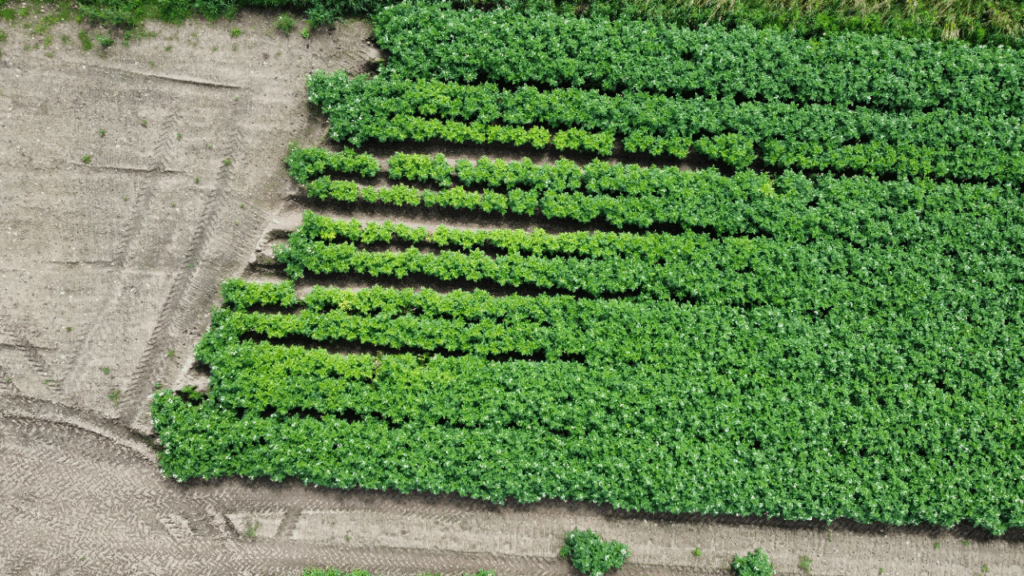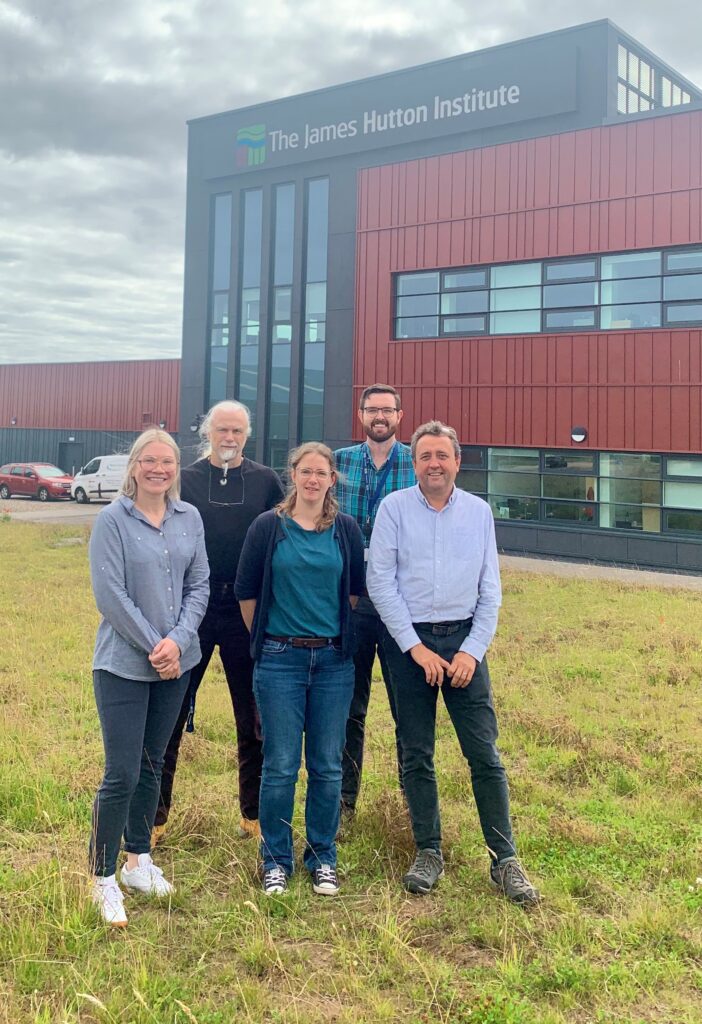The James Hutton Institute joins €4.9 million project to develop sustainable alternatives to harmful pesticides
The James Hutton Institute is proud to announce its participation in Crop Protection Strategies for the Transition to Environmentally-Friendly Agriculture (CROPSAFE), a €4.9 million project funded by the EU’s Circular Bio-based Europe Joint Undertaking and its members (CBE JU) and led by University of Alicante.
The four-year initiative brings together research and technology organisations to develop sustainable, bio-based pest control solutions for key food crops under threat from rising pest pressures and the phase-out of toxic pesticides.
It is expected to produce a new generation of bio-based pestcontrol tools that are both environmentally friendly and economically viable, supporting the EU’s Green Deal and Farm to Fork strategies.
The Hutton is a world-renowned independent research organisation that works in collaboration with partners across the globe on pioneering projects to find solutions for the challenges posed by the climate and nature crises on the sustainability and resilience of our crops, land, natural resources and communities. It does this through the development of transformative tools, interventions, products and land management practices.
Plant Pathologist at the Hutton, Dr Lorena Rangel, said, “It’s exciting to be part of a collaborative effort with researchers across the UK and EU, all working toward finding effective biological alternatives to synthetic pesticides. This kind of joined-up approach reflects where the field is heading, especially as policy continues to drive change. Embracing sustainable and circular economy solutions is not just forward-thinking, it’s becoming essential.”
Hutton Plant Nematologist, Dr James Price, who is leading one of the 10 CROPSAFE work packages, said, “This project responds to a crucial requirement to manage currently unsustainable pathogen pressures using bio-based alternatives to classic pesticides that are often associated with harmful off-target effects on the wider environment.
“Rapidly combining testing of the mode of action for these novel bio-based products with scaled up greenhouse and field trials using formulated products separates this project from many others. CROPSAFE also promises to go beyond the laboratory, disseminating results directly to stakeholders at in-field events ensuring a legacy for the project past the completion date in 2029.”
“It’s exciting to be part of a collaborative effort with researchers across the UK and EU, all working toward finding effective biological alternatives to synthetic pesticides.”
Dr Lorena Rangel, The James Hutton Institute


According to the United Nations Food and Agriculture Organization (FAO), approximately 40% ofglobal food crops are lost annually due to pests and diseases. While conventional chemical pesticides have been effective, they pose significant environmental risks, including soil degradation, bioaccumulation in non-target organisms, and contamination of water sources. Many of these substances are now labelled ‘Substances of Very High Concern’ (SVHC) or ‘Candidates for Substitution’ (CfS) by the European Chemicals Agency (ECHA) and are being progressively withdrawn from the EU market.
This regulatory shift has left many farmers without viable crop protection options. Despite this, the development of commercial biopesticides (pesticides derived from natural organisms or substances) is lagging behind the demand, with bio-based products accounting for only 5% of the current market by value. CROPSAFE aims to fill that gap by developing cost-effective, bio-based alternatives that could increase yields by up to 20% and reduce greenhouse gas emissions associated with crop protection by as much as 75%.
The project will focus on three urgent crop-pest cases, potatoes, tomatoes and bananas.
- Potatoes are threatened by potato cyst nematode (PCN). The most effective control agent, Fosthiazate (CfS), will lose its approval in 2027.
- Tomatoes face up to 65% yield losses from root knot nematode (RKN). Metham sodium (CfS), widely used against RKN, will be withdrawn this year.
- Bananas are increasingly impacted by Banana Weevils (BW). The go-to pesticide, Lambda-cyhalothrin (CfS), is set to expire in 2026.
CROPSAFE will deliver an integrated package of bio-based tools, including active ingredients, delivery systems, and decision-support models for effective, safe, and scalable pest control. The solutions will be developed using renewable biomass such as algae, forestry residues, spent coffee grounds, and fungal by-products, and refined by three industrial biorefinery partners within the consortium. These materials will serve as the foundation for new Safe-and-Sustainable-by-Design (SSbD) crop protection products.
The Hutton will play a central role in laboratory testing and field trials targeting PCN in potato crops, leading efforts to evaluate bio-based solutions under UK growing conditions. Drawing on its extensive expertise in nematology and sustainable agriculture, its researchers will generate critical performance data to guide the development of effective alternatives to withdrawn pesticides.
Complementary field trials for tomato and banana will be conducted by partners in Italy and Spain. Across all sites, results will be integrated into advanced decision-support tools to enable real-time, location-specific pest management strategies forfarmers.
More information can be found here http://www.linkedin.com/company/cropsafe-project/
